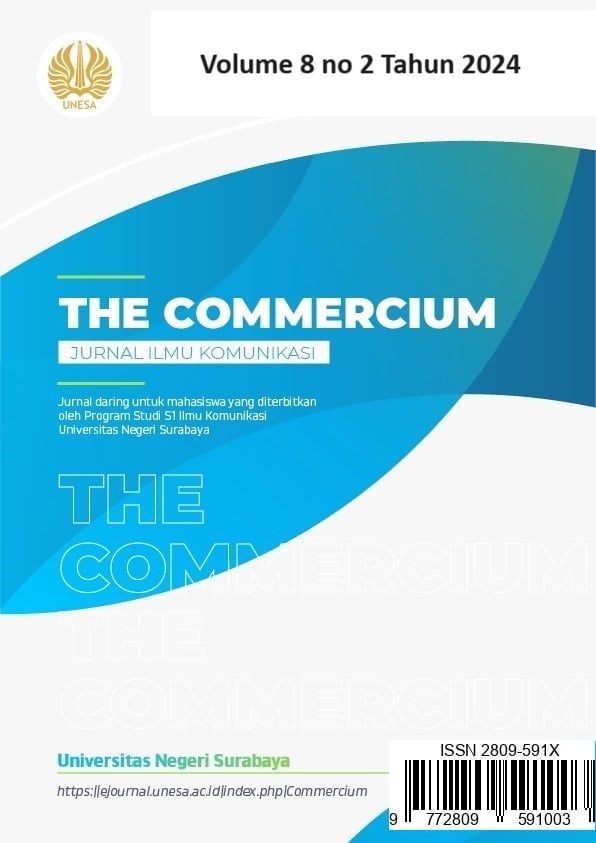Stand Up Comedian Dramaturgy in Conveying Opinions and Social Criticism
DOI:
https://doi.org/10.26740/tc.v8i2.60372Keywords:
Dramaturgy; Stand Up Comedy; Comics; RepressionAbstract
Stand Up Comedy has become a medium for conveying opinions and social criticism based on
restlessness. In achieving the show's goal of being known to a wide audience, comics run the risk of
being restricted and restrained. For this reason, the research aims to find out how comic dramaturgy
practices in conveying opinions and social criticism. The type of research is qualitative. The research
method is phenomenology. The theory used is Erving Goffman's Dramaturgy. The research subjects are
comics who have experience of repression and comics who have a critical persona but are still able to
carry out their performances amidst the risk of repression. This research found that the type of social
criticism regarding political, educational and cultural issues is most vulnerable to repression from
outside parties. The forms of comic repression experience range from reprimands to threats and forced
removal of social media accounts. There was a fearful response from comics, but there were also comics
who continued to run the show. Behind the stage, actors prepare the performance to minimize problems
arising from the performance. The aspects that comics pay attention to are (1) Material preparation; (2)
Material delivery techniques; (3) Self-positioning; (4) Control the audience by not recording and just
posting content.
Downloads
Downloads
Published
How to Cite
Issue
Section
 Abstract views: 97
,
Abstract views: 97
, PDF Downloads: 318
PDF Downloads: 318

